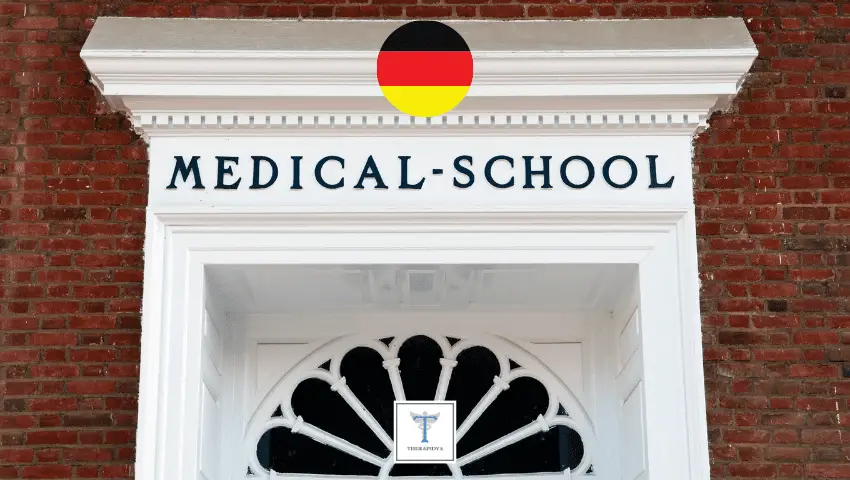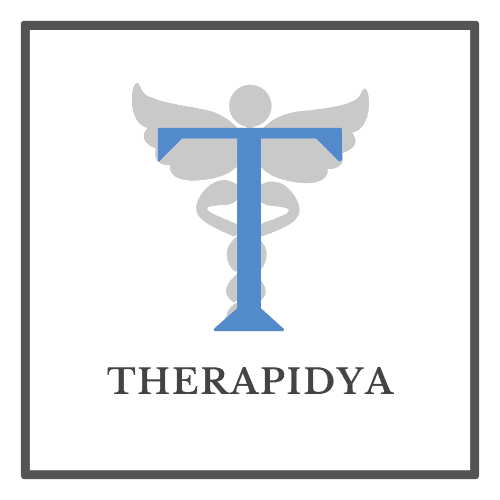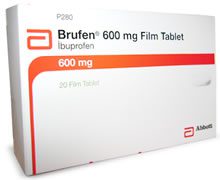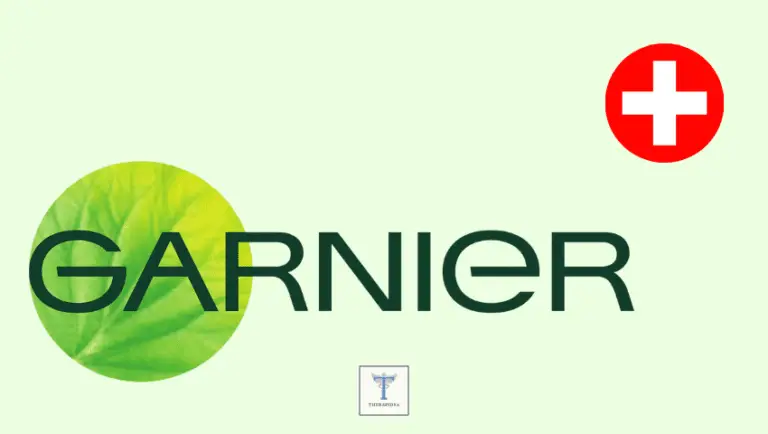Studying Medicine in Germany: A Full Guide .. 2023
The course in medicine is one of the most popular among German and foreign students, particularly international students, and the question remains, how can I study medicine in Germany? How do I go about becoming a doctor in Germany?
This article explains the characteristics of studying medicine in Germany and presents the most important facts that you need to know, beginning with A and ending with Z (Second Exam for Medical Students). As a result, the focus of this article will be on studying medicine with the goal of becoming a doctor (by taking the state examination course).

Studying Medicine in Germany
Things appear more complicated than beginning another course of study in Germany, and this is because studying medicine differs from other study programs in Germany in many ways, including:
- Unique application procedure (for EU students via Hochschulstart) due to nationwide admission restrictions.
- More stringent application requirements (simply, A-levels with excellent grades, and high German language skills).
- Standard course structure, it is not integrated into the Bachelor/Master system but leads to a state examination (German: Staatsexamen).
Also read our studying medicine in Belgium and studying medicine in Netherlands.
Basic information for studying medicine in Germany
Among the most important information about studying medicine in Germany are the following:
Degree
The regularly organized course of study in medicine takes six years and three months and is completed by a state examination (Staatsexamen), for which a license to practice medicine is obtained (approval).
The language
Medical education is provided in German only. So, you need to meet the German language requirements to study in Germany.
Universities
There are 43 medical universities in Germany, most of which are public, and only four of them are private.
Expenses
Public universities in Germany are exempt from tuition fees except for the state of Baden-Württemberg which charges a fee of €1,500 per semester from outside the EU.
Application requirements and admission procedures
The application procedure for a medical degree is very competitive and complicated due to the complex selection process via Hochschulstart, which only EU students have to go through.
The doctor
The studies, culminating in graduation with the state examination, are followed by a 6-year practical phase in which one is trained as a specialist in a specific medical field (German: Facharzt), and this training concludes with a specialized medical examination.
Scholarships
The DAAD does not offer any scholarships for international students in medicine (Staatsexamen) and large institutions (Begabtenförderungswerke) usually only accept applications after Physikum but there is at least a Deutschlandsteppendium available.

Degree – Staatsexamen (state examination)
Medical studies and training in Germany (study medicine in Germany) are strictly regulated by federal medical registration regulations, so no matter which university you choose to study medicine in Germany, you can expect a similar course structure and training steps to work as a medical professional.
Medical school (which medical training students get at a university) lasts for 6 years and 3 months in Germany and is not integrated into the bachelor’s and master’s degree system so it is different from most other courses offered by German universities.
Instead, medical school ends with a state examination (German: Staatsexamen) that leads to approval as a doctor. Note that medical training in Germany can be pursued immediately after graduating from high school, and for many international students, this will be after completing a preparatory year (Studienkolleg) in Germany.
However, university education is not the only training required to practice medicine in Germany. Following the completion of the state examination, prospective doctors enter practical training modules that can last up to six years. They can then choose to participate in additional training and educational measures throughout their course. their professional careers.
Is medicine taught in English in Germany?
Medical courses in Germany are only taught in German and require interaction with patients in German, so studying medicine in Germany requires excellent German skills. Excellent language skills at the C1 level are often required for admission to a study program, but some programs accept applicants who speak German at the B2 level.
The medical studies that lead to approval to practice medicine in Germany culminate in a state examination that is only given in German.
While the degree format in the state examination is only offered in German, there are other degree formats that are integrated into the Bachelor and Master system which include English-language studies in the field of health sciences, so one of the options is to obtain academic training in the field of medical studies.
Health sciences are English-language master’s or bachelor’s programs that are not part of the curriculum to become a practicing physician but can still give useful insights into the field and may be, and a great addition to your training as a doctor abroad Use StudyFinder to find many options.
Medical Universities for Studying Medicine in Germany
The majority of medical universities in Germany, 39 in total, are public, and one of its most notable advantages is that it has extensive infrastructure and research networks in Germany, is free (there are no tuition fees), and offers the opportunity to pursue doctoral studies.
All medical studies in public universities form the basis of some Federal regulations affecting course structure In addition to the application and admission processes to a public university in Germany, students usually need excellent GPAs.
There are four private German universities that offer medical studies and unlike public universities they are not subject to a nationwide NC, so the application process varies and does not depend only on applicants’ GPAs. On the downside, students need to pay a private university fee which is currently €5,700 – €15,500 per semester depending on the university you choose.
How much does it cost to study medicine in Germany for international students?
For the majority of programs offered at German public universities, studying medicine in Germany is usually free for both international and German students, with the only cost being the semester contribution twice a year, which varies by university and ranges from €200 to €300 per semester. It provides numerous benefits to students.
There are two scenarios in which international students have to pay to study medicine in Germany:
- International students from outside the European Union who wish to study at a Federal State University of Baden-Württemberg must pay a tuition fee of €1,500 per semester.
- Students who enroll in one of the four private universities that offer medical studies in Germany are required to pay a tuition fee of €5,700 – €15,500 per semester.
Application requirements and admission procedures for studying medicine in Germany
Since medicine is a federally regulated course of study subject to nationwide entry restrictions, applicants can expect to face similar application requirements and procedures regardless of where they seek to apply. To study medicine in Germany, international students typically need to meet the following application criteria:
| Requirements | Interpretation |
| Excellent German skills | Medical studies to become a doctor are taught in German only and excellent German language skills (often at C1 level) are essential at the time of application and students who need to visit the Studienkolleg can increase their German level at the Studienkolleg. |
| High school leaving certificate | It should be similar to German A-Levels and can be compensated by visiting a one-year “M course” at the Studienkolleg in Germany. |
| Good English language skills | Despite courses and practical exercises in German, English language skills are essential to reading the scientific literature. |
| Excellent school knowledge in Biology, Chemistry and Mathematics | A good understanding of these areas is essential to passing the first part of medical training and universities may make your scores in these subjects part of the selection procedure. |
| Excellent rate | Because of the intense competition, medical students in Germany are often straight students. Among other criteria of the university, it is very likely that your GPA will play a role in the selection of applicants. |
| University standards | Since German universities receive more applications for the subject of medicine than the places available to them, they need to develop additional criteria to classify applicants and know who accepts. These criteria differ from one university to another, but may include professional training in a medical field, allocating time for volunteer service, results Good in one of the aptitude tests in medical study. |
What is the admission procedure for international students who want to study medicine?
Applicants who have obtained a high school leaving certificate outside the European Union and wish to start their medical studies at a German university must apply directly to the university or via uni-assist. other.
Students who have obtained A-Levels in the European Union, Iceland, Liechtenstein, Norway or from public German schools abroad cannot apply directly to German universities directly to study medicine in Germany, and their applications are managed by hochschulstart, a trust-operated platform for admission to higher education (Stiftung). This means that for this group of applicants, applications will be coordinated and managed centrally.
This specialization in the application procedure to study medicine in Germany has implications for admission which are also unique, 5% of the study places in each university are reserved for foreign students from outside the EU in an exceptional quota for foreigners, and if you are among this group of applicants, you have done great in your high school career and excellent grades at Studienkolleg, you have a chance to register for one of these reserved positions.
After allocating sites to international students from outside the European Union and other groups that are considered special quotas such as the German army, about 87% of the total seats remain. Applicants from the European Union, Liechtenstein, Iceland, Norway and from German schools abroad compete for these remaining spots.
Admission quotas can give you an idea of how to score a place to study. In the GPA quota (German: Abiturbestenquote), only applicants with the highest GPA will be accepted and the majority of students, i.e. 60%, are accepted according to the criteria set by the universities (German: Auswahlverfahren der Hochschulen, AdH).
The remaining 10% is allocated to applicants who meet additional qualifications such as excellent scores on an assessment test or work as a health professional such as a nurse (German: zusätzliche Eignungsquote).
This post is also available in: Dansk (Danish) Nederlands (Dutch) Français (French) Deutsch (German) עברית (Hebrew) Italiano (Italian) Polski (Polish) Română (Romanian) Русский (Russian) Türkçe (Turkish) Español (Spanish) Български (Bulgarian)






